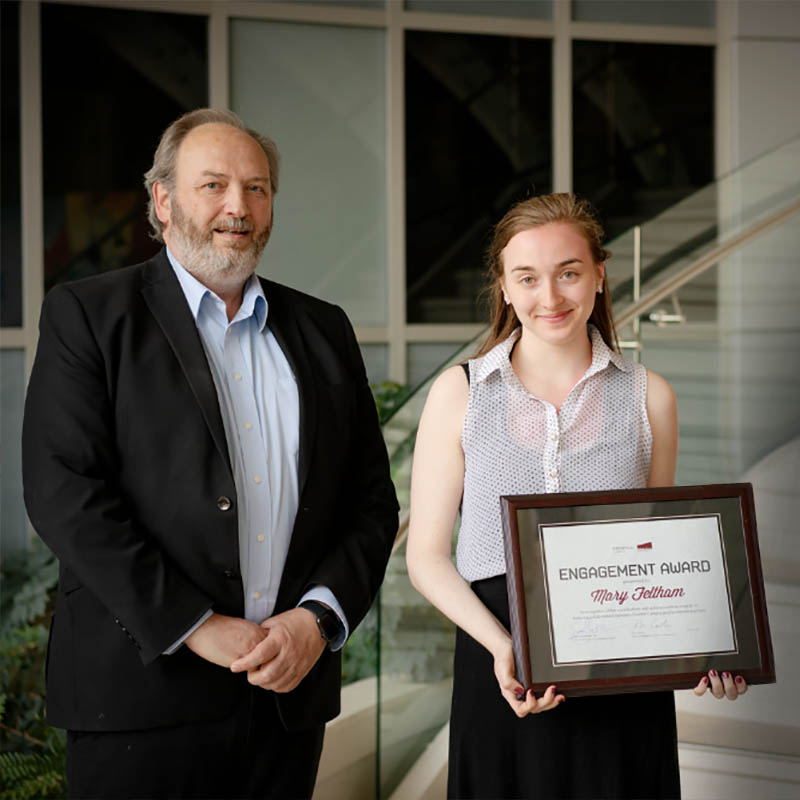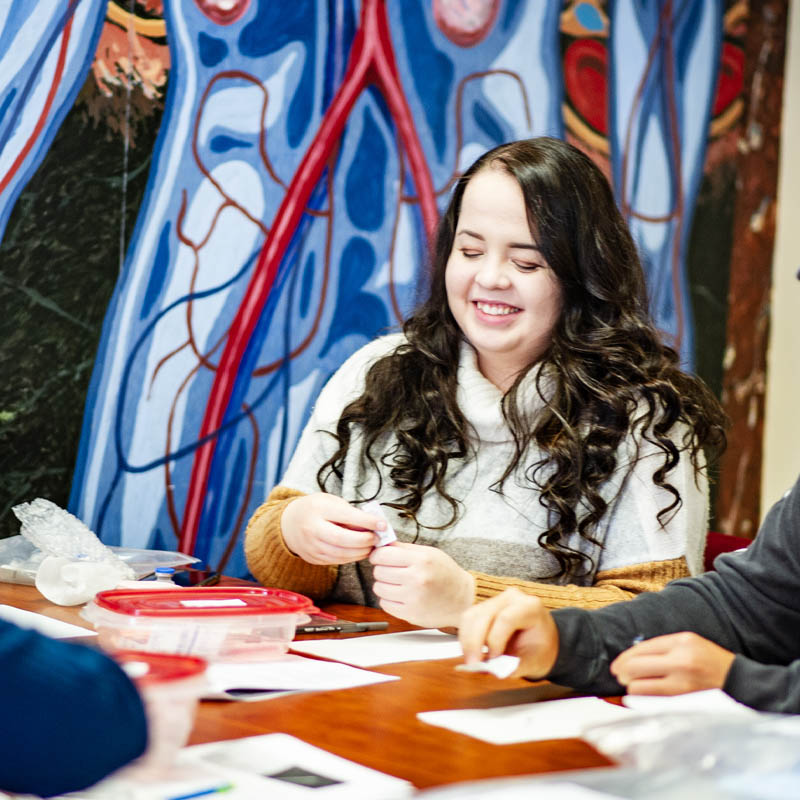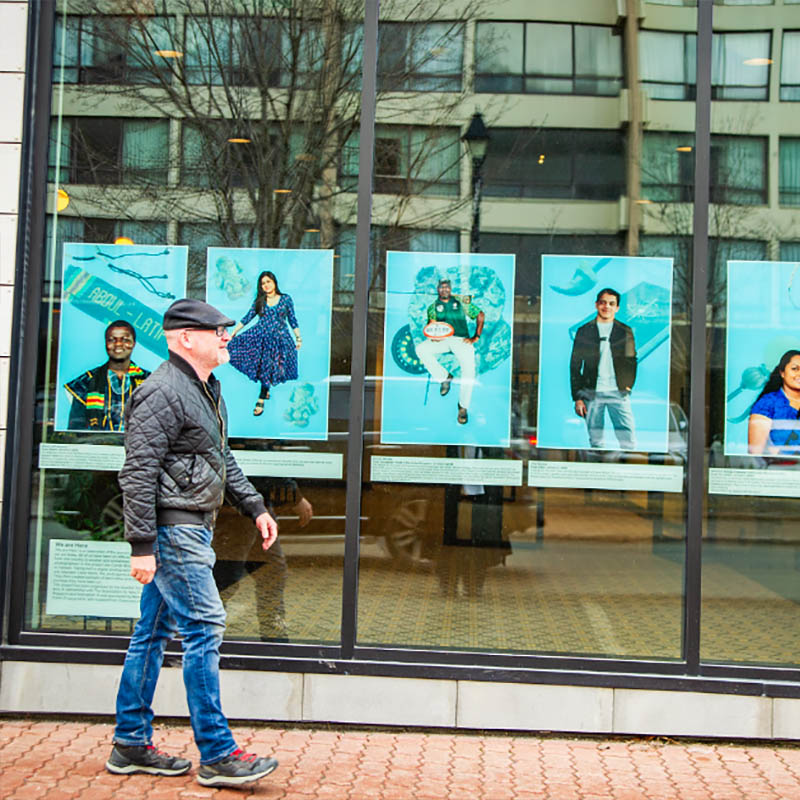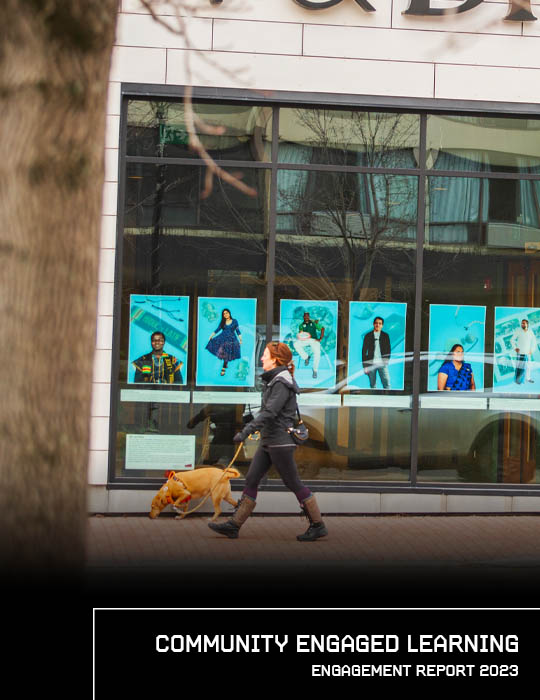Choose a report:
➤

Office of Engagement

Community Engaged Research



Pentachlorophenol image generated by students in the City-engaged Learning course.
Since 2016, Grenfell Campus, Memorial University, has offered the City-engaged Learning Program, which applies experiential learning techniques while creating opportunities for collaboration with the City of Corner Brook. Topics for each partnered course are set in collaboration with the City staff. Courses offered through this partnership are offered at the undergraduate and graduate levels and include courses in geography, environmental sustainability, and chemistry.
The winter 2023 iteration was taught by Dr. Shegufa Shetranjiwalla-Merchant, Assistant Professor in the School of Science and the Environment — Chemistry.
In the current engaged learning partnership, students developed projects that were focused on persistent and toxic chemicals of citizen concern that are found in our environment. Third-year students of the Environmental Toxicology Course ENVS 3000 applied their learning received through on-campus lectures to prepare projects on topics that provided information for municipal action and public awareness. Topics covered chemicals found on wooden power poles to prevent biofouling, asphalt fumes that are emitted during road construction and water-repellent coatings used on skis and boat equipment. Projects were developed in consultation with city personnel, following an experiential learning format with reflections, regular discussions with City staff, peer reviews and submission of an executive technical report. Students accessed data from the City to analyze their results and presented their findings to the City staff and members of the City council at the end of the term. Students calculated the impacts for vulnerable areas in the City, provided their recommendations for improvements and advocated for City Hall-led town hall discussions on these issues to influence bylaws and policies.
Student presentations focused on the following:
PCP: The use of pentachlorophenol (PCP) as a biocide to treat wood for power poles, railroad ties, bridges, highway dividers and plywood. The students in this group recommended that the soil and water near utility poles be tested for PCP, and encouraged the City to choose alternate pole types going forward: untreated wood, concrete or steel. Students: Maria Zimmerman, Ewon Leib, Luke Fifield and Sarah Dumaresque.
PFAS: More than 9,000 per- and poly- fluoroalkyl substances (PFAS) have been identified. These "forever chemicals" have long lifespans in the environment and bioaccumulation in the human body. PFAS are primarily used in ski waxes, fire fighting foams, machinery greases, non-stick pans, water-repellent gear and boat equipment. The students in this group recommended the City implement testing for PFAS in Corner Brook and begin the process of identifying sources and mitigating risks, as well as informing citizens of potential risks of PFAS. Students: Laura Colbourne, Kaitlyn Pennell, Ryan Pike and Meaghan O'Neill.
PAHs: There are more than 100 different polycyclic aromatic hydrocarbons (PAHs) with unique potential adverse effects to humans and the environment. This group focused on PAHs in asphalt. Through fumes and vapours from the application of hot asphalt on roads, PAHs are transported into our environment via air, water and soil. These fumes are of particular concern to construction workers that are laying the asphalt. The students recommended that the city engage in public awareness and water testing and implement engineering controls such as fume suppressants. Exploring alternate road aggregates, such as used tires to supplement asphalt was also recommended. Students: Jennifer Anil. V, Izek Walters and Kiana Jacobs.
Visit the City-engaged Learning website to learn more.